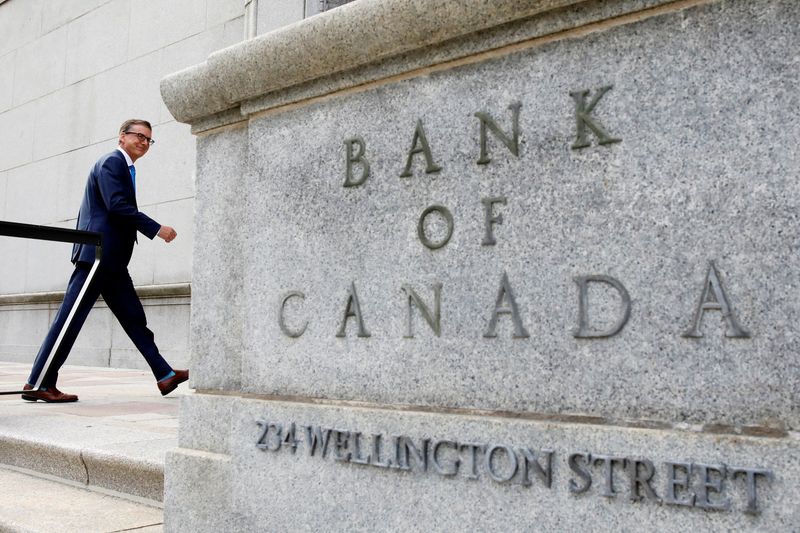By Julie Gordon
OTTAWA (Reuters) - The Bank of Canada on Wednesday said it would take a flexible, risk-based approach in its nascent role as a digital payment regulator, aiming to ensure confidence in the safety and reliability of the fast-growing electronic payment segment.
The central bank became the regulator for payment service providers (PSPs) like card networks, digital wallets and money transfer services under Canadian law last year. It is now working with the federal government on setting out how that supervision will work.
"We’re not going to use a blanket supervisory approach to the task at hand," Rob Morrow, Bank of Canada's executive director of Retail Payments Supervision, said in a prepared speech.
"We will take a risk-based approach that will focus on end-user impacts and the efficiency of payment services."
The level of regulatory oversight will be guided by how much risk a given PSP brings to consumers and the payment ecosystem, said Morrow, speaking at an event in Toronto.
The Bank of Canada estimates more than 2,500 entities will fall under its supervision once the rules come into force. PSPs include big names like Block Inc's Square payment system and privately held Stripe Inc.
All domestic and foreign PSPs that operate in Canada will be required to register with the central bank, likely starting in 2024, said Morrow, adding that timing will ultimately come down to the federal government.
PSPs that fail to comply will face real consequences, starting with a "compliance agreement" laying out the needed actions, followed with a "notice of violation" that may include a fine of up to C$10 million ($7.3 million), said Morrow.

"By ensuring these key risks are well managed, we will further build and maintain Canadians’ confidence that mo’ ways of paying do not, in fact, create mo’ problems," said Morrow, referencing the Notorious B.I.G.'s 1997 hit song "Mo Money Mo Problems."
($1 = 1.3637 Canadian dollars)